
views
X
Expert Source
Robert Dhir, MDBoard Certified Urologist & Urological Surgeon
Expert Interview. 23 September 2020.
The inability to urinate can lead to bladder problems known as urinary retention, so if you cannot urinate, your doctor will need to put in a catheter temporarily to empty your bladder. To ensure that you urinate after surgery, talk to your doctor before surgery, move around and try to relax your bladder after surgery, and alert your doctor of any problems post-surgery.
Managing Pre-Surgery Problems
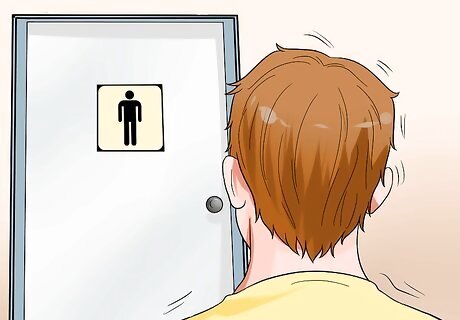
Empty your bladder completely before surgery. Another thing that can help your bladder after surgery is making sure that you empty it before you go under anesthesia. You should urinate as close to going under as possible. Any urine left in your bladder during your surgery can make it harder to urinate afterwards. Medical professionals agree that having an empty bladder makes it easier to perform certain procedures, especially ones that are around the abdomen and vagina.

Recognize if you are at risk. Some people are more at risk of being unable to urinate after surgery. Some medications will increase your risk, so you should talk to your doctor about your medications before surgery. Other risk factors include: Being over 50 years old. Being male, especially if you have an enlarged prostate. Being under anesthesia for a long time. Having a procedure done on your colon, hip, or knee Taking certain medications, like tricyclic antidepressants, beta-blockers, muscle relaxants, bladder medications, or medications containing ephedrine.
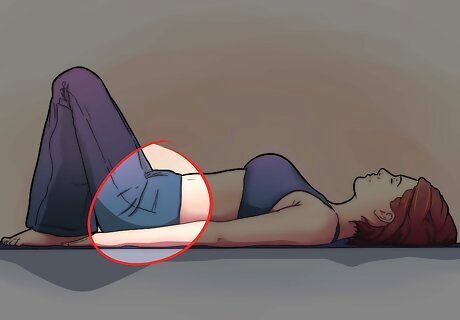
Perform pelvic floor exercises. If you are a woman, you may benefit from performing pelvic floor exercises, such as Kegel exercises. This helps strengthen the muscles used in urination so you can better control your bladder and hopefully be able to urinate more easily.

Make diet changes before your surgery if you suffer from constipation. People who suffer from constipation may suffer from urinary retention. To slightly reduce the risk or the severity of this problem, make sure that you drink plenty of fluids in the weeks before your surgery. You should also add plenty of foods like fruits, veggies, and whole grains, and avoid processed foods. Also, stay active and move around as much as possible. Fruits and veggies have a lot of fiber in them, so increase your daily intake. You can try apples, berries, leafy greens, broccoli, carrots, and beans.
Promoting Urination after Surgery

Move around after surgery. The more that you move around after your surgery, the more likely you are to urinate. Whenever you are safely able to, sit up, stand up, and walk. This helps stimulate your bladder and urges your body to urinate by shifting your bladder into the right position.
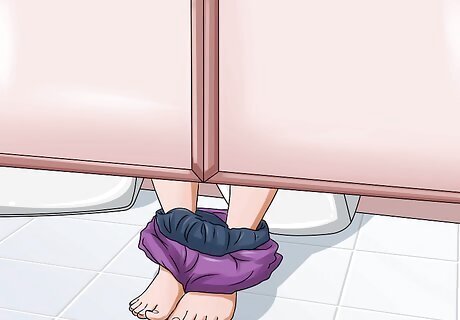
Urinate every 2-3 hours. Going four hours or more without urinating may lead to bladder problems or make it difficult to urinate. After your surgery, try to empty your bladder every two to three hours.
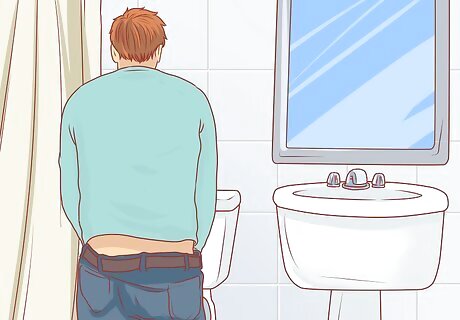
Turn on the faucet. If you are struggling to urinate, try turning on the faucet and letting the water run. The sound of running water can sometimes help stimulate your brain and bladder so you can urinate. If the sound is not helping, run a little bit of the water over your stomach.
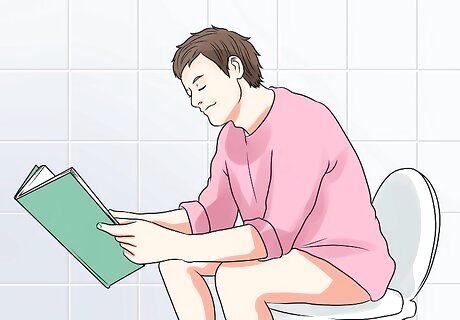
Sit down if you are a man. If you are a man who is having trouble urinating after surgery, sit down to urinate. Sometimes, sitting down can relax the bladder so it can release. Try this a few times instead of standing.

Take a warm bath. If you can, take a warm bath. The warm bath can help relax your brain, body, and bladder, which may help you urinate. Sometimes, it’s easier to urinate in the bathtub right after surgery, and that’s okay. Urinating any way possible is important post-surgery. Try using peppermint oil in a diffuser or other aromatherapy device while taking your bath. Smelling peppermint oil may help you urinate. This may not always be an option after surgery. If the medical team wants you to urinate before leaving the hospital, you may not be able to take a bath.

Avoid drinking excess fluids to try to urinate. Instead, drink fluids at different points throughout the day. While you need to drink fluids and stay hydrated after surgery, you should not drink a lot of fluids to try and get yourself to urinate. This can cause the bladder to get overfull and can lead to stretching or other problems. Instead, sip water or drink a normal amount for you and let the urges happen naturally.
Addressing Bladder Problems Post-Surgery
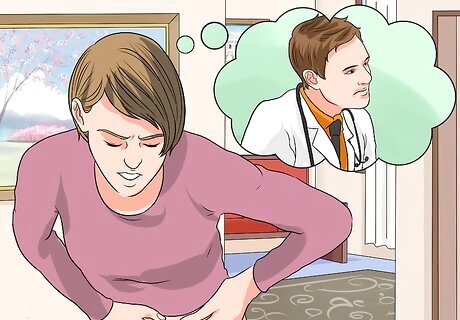
Identify the symptoms of a bladder problem. Due to the anesthesia, you may experience difficulty urinating after surgery. This may include inability to urinate, feeling like you cannot empty your bladder, or needing to strain. You also may need to urinate often, but be unable to urinate very much. These may be symptoms of a bladder infection or another problem. If it's a bladder infection, you may produce small amounts of urine, but you may still feel a need to use the toilet. The urine will usually be cloudy and have a strong smell. If you have acute urine retention, you may have a painful feeling in your lower abdomen, along with swelling. Although you may need to go to the bathroom, you may not be able to urinate.

Tell your nurse or doctor if you can’t urinate. If you cannot urinate after surgery, tell your nurse or doctor. They can examine your bladder by touching it to see if there is any pain. They might also do an ultrasound on your bladder. If they think you need help, they can put a catheter into your bladder to help drain the urine until you can urinate on your own. If you go home after surgery, you should urinate within 4 hours to eliminate fluids that were given to you during surgery. If you haven’t urinated after 4 to 6 hours, contact your doctor or go to the emergency room. You may need the catheter only once. In more severe cases of urinary retention, you may need the catheter inserted for longer.
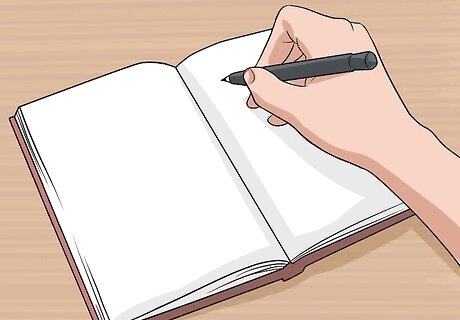
Track your urinary habits. For a few days after your surgery, keep a log of how often you urinate. Note the time as well as the amount of urine. Track how much fluids you are drinking, and compare that to how much you are urinating. You should also track how you feel when you urinate. For example, do you have an urge to urinate but have trouble eliminating? Do you have to strain? Does it feel like you haven't emptied your bladder? Is there a strong smell to your urine? These things can help you figure out if you have a bladder infection or another problem.
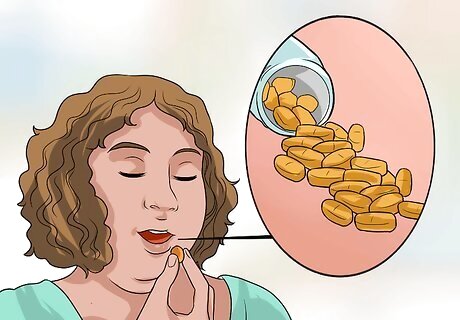
Take medication. There are medications your doctor can prescribe to help you be able to urinate after surgery. The medication will target the area of your brain that controls urination and counteract the effect the anesthesia has on it. This will help you be able to urinate more easily. Alpha-blockers or alpha-inhibitors may be prescribed to help.


















Comments
0 comment